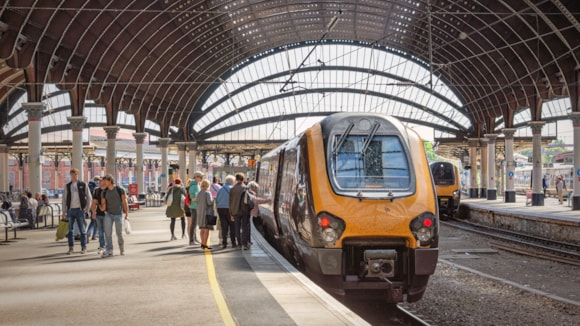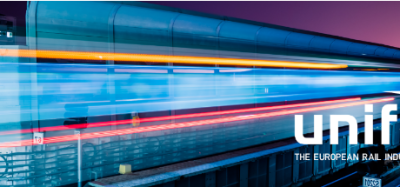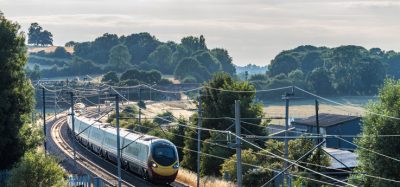Labour Party confirms their policy for UK rail
Posted: 25 April 2024 | Emily Budgen | No comments yet
The UK Labour Party has confirmed their policy and plans for the rail sector and network. Industry figures have issued their reactions.


The UK Labour Party have released this statement, detailing their policy for the UK rail sector:
Britain’s railways should be a source of pride, not exasperation. As the country which created the railways, they are an iconic part of our heritage, and have played an essential role in enabling people to see our country, spend time with loved ones, and seize economic opportunities for more than two centuries.
Labour’s plan is to create a unified and simplified governance structure that places passengers at the heart of the goal, objectives and incentives for the railway, and to bring train operators under public ownership and control.
Public ownership for our railways is about the practical need to deliver better services where they have failed.
Even the Conservatives have had to bring failed franchises into public ownership – most recently TransPennine Express – just like the last Labour Government brought infrastructure into public ownership and control in 2001 after the disastrous collapse of the privatised Railtrack.
To achieve high standards in our rail services, a Labour Government will establish a new, arms length body, Great British Railways. This will be led by rail professionals and industry experts and be responsible for the day-to-day operational delivery of the railways, for ensuring infrastructure and services work together, and for innovations and improvements in the experience of passengers and freight users.
Labour’s plan will fix our railways for the benefit of passengers and the taxpayer. It can usher in a decade of growth, innovation and service improvement, with the railways playing their part in Britain’s national renewal.
A Labour government will set the strategy for Great British Rail, to make sure it delivers for passengers against our six key objectives:
1. Reliable – so that people can have confidence in their journey, whether it’s a one-off trip or their daily commute.
2. Affordable – so that prices are kept, wherever possible, at a point that works for both passengers and taxpayers.
3. Efficient – so that people know that their journey will be as straightforward as possible, from booking to travel, and to provide better value for the travelling public and taxpayer alike.
4. Quality – so that passengers have the service experience they have a right to expect.
5. Accessible – so that our railways are available for everyone to use.
6. Safe – so that people don’t worry about their safety on the railway and are not in fear of accidents or crime while travelling.
We will establish a powerful new passenger watchdog – the Passenger Standards Authority – to independently monitor standards and champion improvement in service performance against these measures.
Labour’s vision for passengers
Every decision – from the long-term strategy set by ministers to the operational decisions of executives and professionals – will be tested against how the railway delivers a reliable, affordable, efficient, quality, accessible, and safe railway for passengers.
Passengers should see and feel the improvements we make and begin to shed the frustrations they experience in today’s unreliable system. Specific improvements will include:
- Automatic delay and cancellation refunds
- More integrated timetables, ticketing, and fares
- An ambition to introduce a best-price guarantee, like Transport for London offers
- Digital season tickets
- A single new passenger watchdog – the Passenger Standards Authority
- Clear standards that need to be met by all services
- Better mobile connectivity, including moving towards 5G
- Better integration with other modes, such as buses and cycle hire.
Labour’s Shadow Secretary for Transport, Louise Haigh said: “Labour’s plan is to deliver a unified and simplified rail system that relentlessly focuses on securing improved services for passengers and better value for money for taxpayers.”
The Conservative rail minister Huw Merriman has criticised Labour’s plans as “pointless, unfunded rail nationalisation”.
“They don’t have a plan to pay for the bill attached to their rail nationalisation,” he said. “Without a plan to pay for this, it means one thing: taxes will rise on hard working people,” Merriman added.
There is no direct mention of nationalisation in Labour’s release.
Others in the rail sector have issued their reactions too.
The Rail Freight Group (RFG) welcomed the Labour Party’s commitment to rail freight growth set out in its document ‘Getting Britain Moving: Labour’s Plan to Fix Britain’s Railways’ published today.
Maggie Simpson, RFG Director General, said: “We are pleased that the Labour Party has highlighted the huge economic potential of rail freight and is committed to measures including statutory duties for freight and long-term growth targets. Our members are working to get more goods moving by rail and we strongly welcome this support.”
RIA Chief Executive Darren Caplan, said: “It is important that the political parties set out their plans on what they would do if they won the forthcoming General Election, and so the Railway Industry Association welcomes the Labour party’s contribution to the debate on the future of UK rail.
“We welcome the pledge to make rail reform a priority early in the next parliament, which would give certainty to our members about the future structure of the railway industry, and also the commitment to a long-term strategy, which RIA has been calling for in recent years. It is also positive that rail is recognised as essential to economic growth, integrated transport connectivity, levelling up the nations and regions of the country, and in helping to deliver Net Zero; and that there is a need to deliver value for money for the taxpayer in rail.
“We now look forward to hearing others’ contribution to the debate on the future of rail.”
Related topics
Cargo, Freight & Heavy-Haul, Freight, High-Speed Rail, Infrastructure Developments, Multimodality, Operational Performance, Passenger Experience/Satisfaction, Rail Fares/Ticket Pricing, Regulation & Legislation, Smart/Contactless Ticketing, The Supply Chain, The Workforce, Timetabling/Scheduling
Related organisations
Conservative Party, Great British Railway Transition Team, Labour Party, Rail Freight Group (RFG), Railway Industry Association (RIA), TransPennine Express (TPE)
Related people
Darren Caplan, Huw Merriman, Louise Haigh, Maggie Simpson, Stephen Morgan MP








